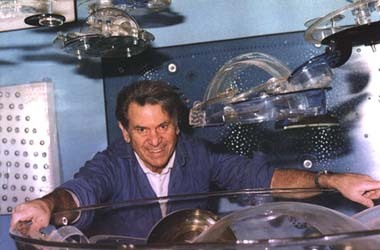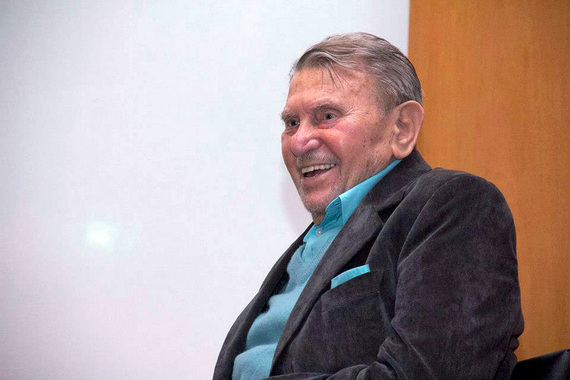A Visionary
Gyula Kosice (1924-2016) was an artistic innovator who used diverse materials to create beautiful abstract, often kinetic, works. He was also a dreamer and a visionary, who created models of what he called hydrospatial cities that would float through space. A visit to his studio was an overwhelming experience both visually, with glittering objects in motion wherever you looked, and intellectually, as the elegant artist quietly and precisely described one futuristic idea after another.
 |
|
Images courtesy of Gyula Kosice. |
Kosice was among the last of a dying breed. In the 19th and early 20th centuries, many painters and sculptors believed that art could have a significant impact on society, and improve the lives of large populations. Today this belief is rare, its optimism snuffed out by two world wars and the progressive marginalization of an increasingly isolated and conceptual art world: today paintings sell for ever higher prices, but play little real role in society in general.
 |
|
|
Another great Argentine artist, Luis Felipe Noe, reflected that Gyula Kosice marked an era, and he was undoubtedly correct. To see Kosice's art, and listen to the flights of his imagination, was to experience a unique and entrancing form of time travel, both to a future space age, and to a past in which artists could genuinely believe that their work could improve political and social discourse. Did Kosice really believe in the technologies he designed? I don't know, and ultimately I don't think it matters. What does matter is that it was inspiring to hear him speak, and that it will continue to be inspiring to see the ingenious and beautiful works that survive him.
 |
|
|
TO FOLLOW WHAT'S NEW ON FACTS & ARTS, PLEASE CLICK HERE!




